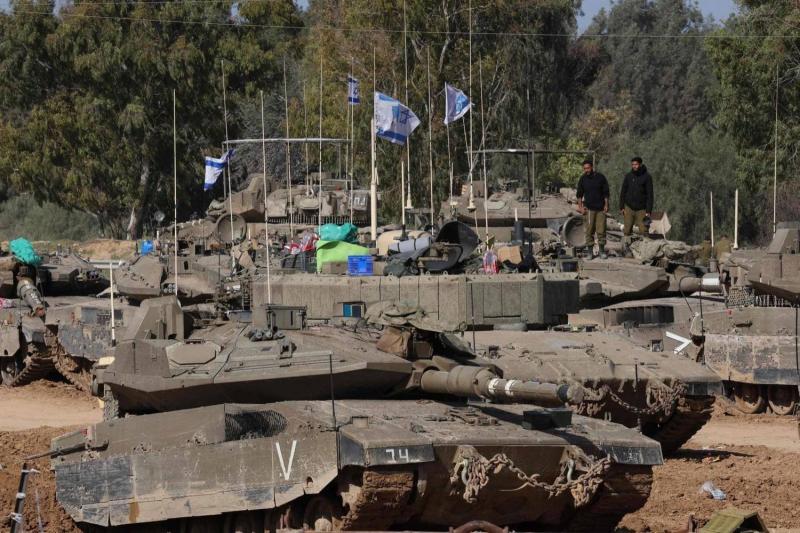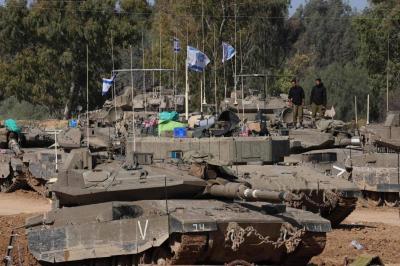After the latest round of negotiations regarding the ceasefire in Gaza, both the Hamas and Israeli delegations left Cairo, while reports confirmed that Israel began mobilizing its tanks near Rafah in preparation for an incursion.
Following a warning from the United States for the first time about stopping some arms supplies to Israel if it launches a large-scale attack on the city of Rafah, Israeli Prime Minister Benjamin Netanyahu stated that if Israel needed to "stand alone," it would fight "alone," according to a statement released by his office. Netanyahu mentioned that Israelis are prepared to fight "tooth and nail" and added that there would need to be some form of civilian government in Gaza, possibly with assistance from the UAE and others seeking stability, hoping to overcome disagreements with Biden. Netanyahu noted that the Israeli army had lost hundreds of soldiers in Gaza and had destroyed twenty out of twenty-four Hamas battalions so far, while spokesperson Daniel Hagari stated that the army had the necessary ammunition for the Rafah operation and other planned operations.
This came as indirect talks aimed at reaching a ceasefire and avoiding an attack on Rafah concluded in Cairo, two days after their resumption. Hamas announced early Friday that "the ball is entirely in Israel's court" regarding the ceasefire agreement. The Israeli delegation and the American intelligence director left Egypt, and a senior Israeli official stated that Israel had provided the mediators in the Gaza ceasefire talks with its reservations about Hamas’ proposal for a hostage release agreement, considering this round of negotiations in Cairo to have ended.
US Secretary of State Antony Blinken confirmed in a phone call with his Egyptian counterpart Sameh Shoukry that the United States opposes any forced displacement of Palestinians and does not support a large military operation in Rafah. The White House indicated that attacking Rafah would not achieve a defeat of Hamas, and Washington had suggested alternatives to Israel on how to pursue Hamas elements. The White House also stated that President Biden had instructed his team to continue working with Israel to "deliver a lasting defeat" to Hamas and that Washington had not made a final decision regarding the shipment that had been suspended for Israel. National Security Council spokesperson John Kirby indicated that the United States wants to help Israel target Hamas leaders and establish an alternative governance structure.
All of this occurs amid fears among Palestinians of a new "Nakba" reminiscent of the events of 1948, when 700,000 Palestinians were expelled from their homes with the declaration of the State of Israel, as the anniversary of the old Nakba approaches on May 15.




